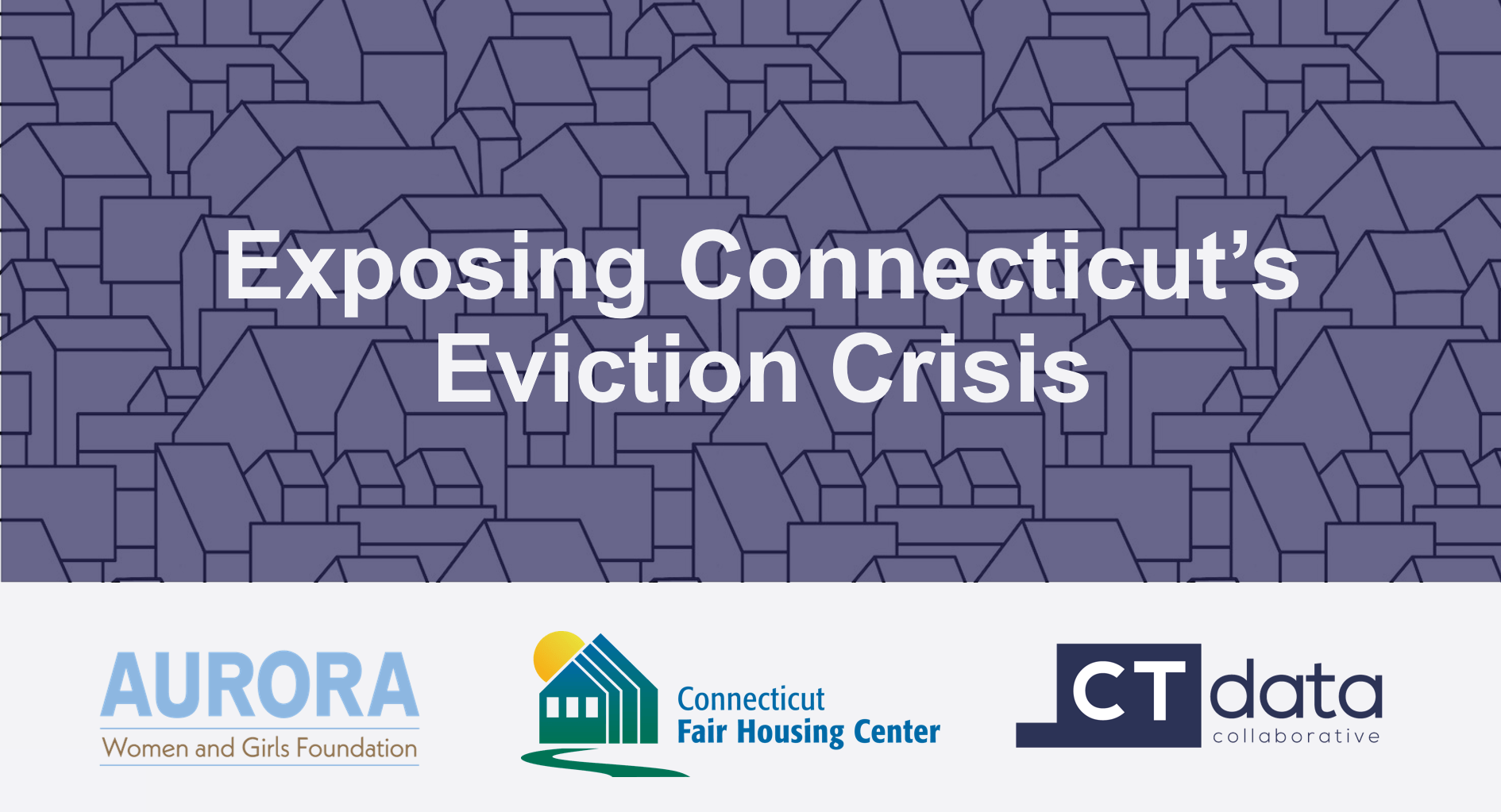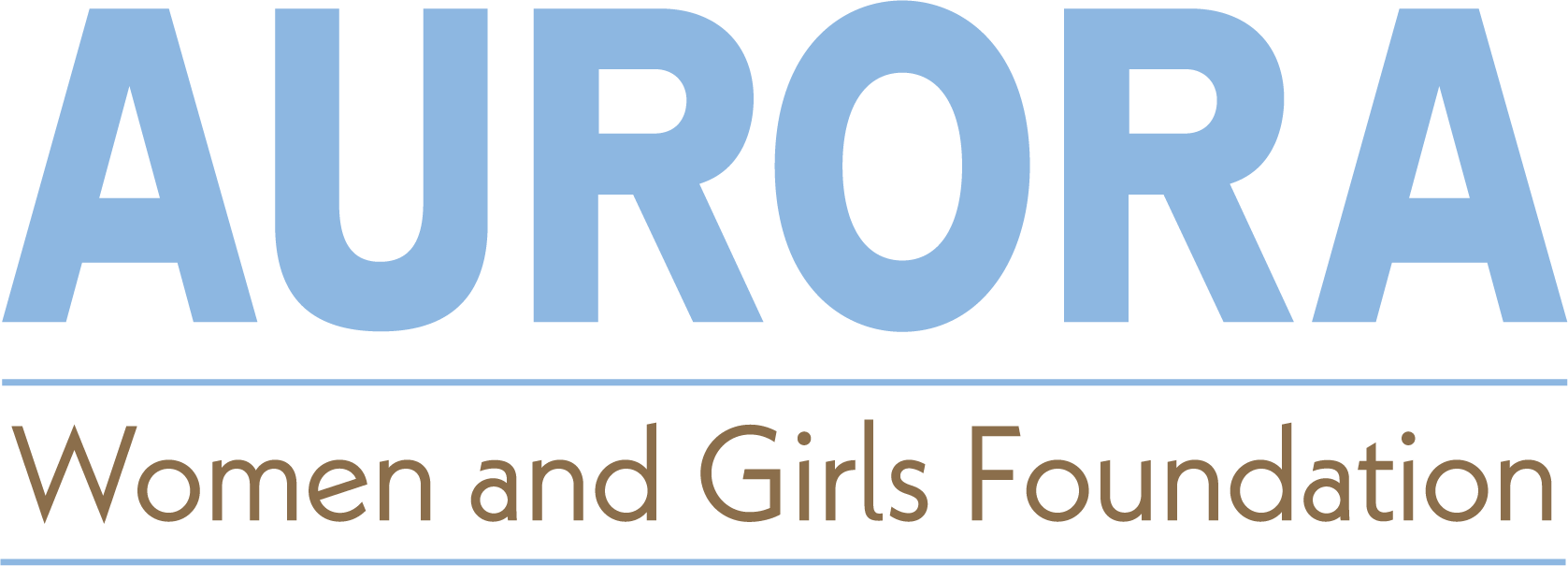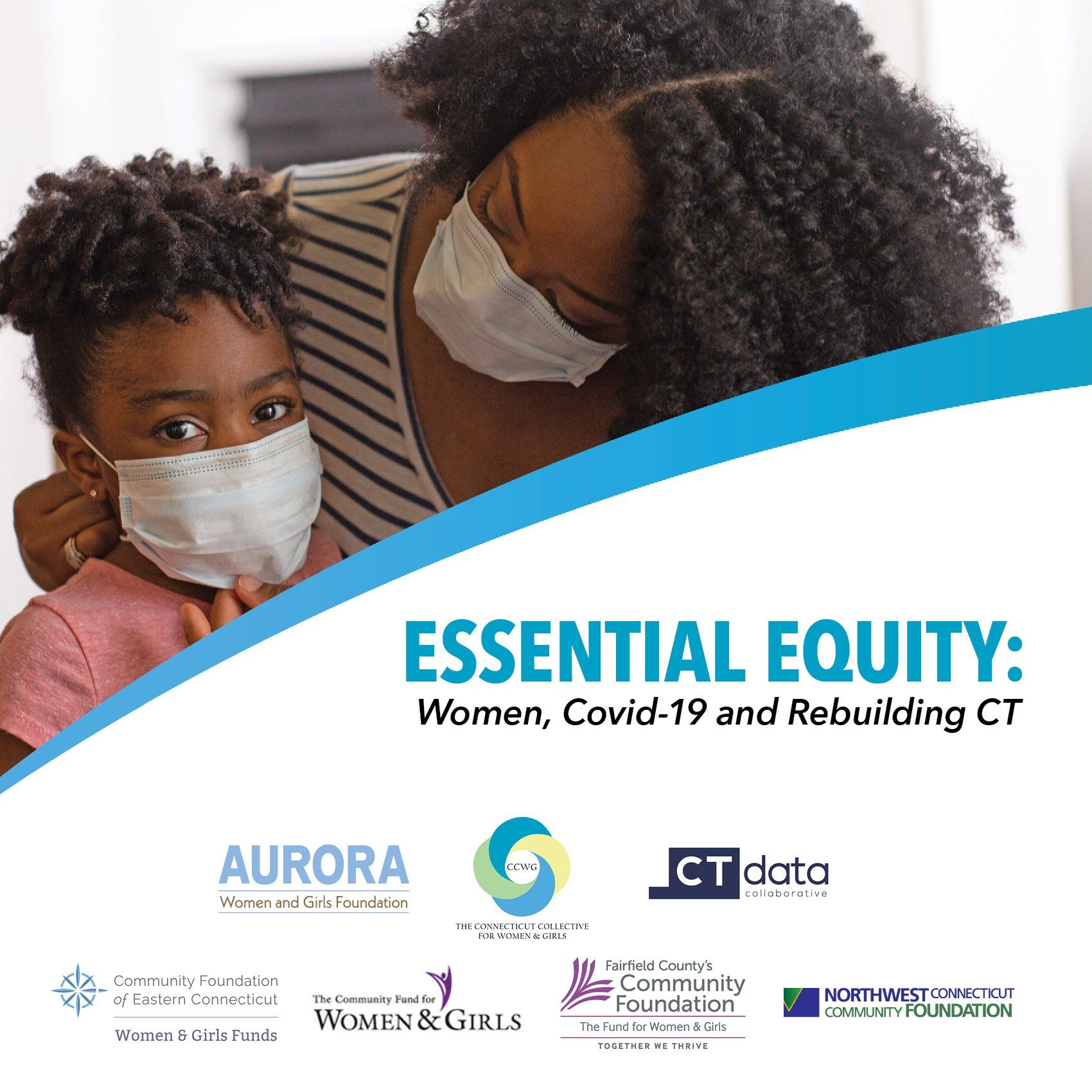THE AURORA FOUNDATION
EXPOSING CONNECTICUT'S
EVICTION CRISIS:
Understanding the intersection of race and sex
in Connecticut's eviction crisis

EXPOSING CONNECTICUT'S EVICTION CRISIS: Understanding the intersection of race and sex in Connecticut's eviction crisis
ABOUT THE DATA RELEASE
On Tuesday, February 8th, 2022 at 10:00 a.m. we released our latest data that exposed Connecticut's eviction crisis. This presentation included panelists from CT Fair Housing, CT Data Collaborative and Aurora Women and Girls Foundation who explained the scope of the eviction crisis in Connecticut, shared findings of the analysis, and discussed ways advocates and lawyers are working to prevent evictions in Connecticut and restore tenants’ rights.
This research was funded by the Aurora Women and Girls Foundation, the William and Alice Mortensen Foundation,
and the National Low-Income Housing Coalition.


